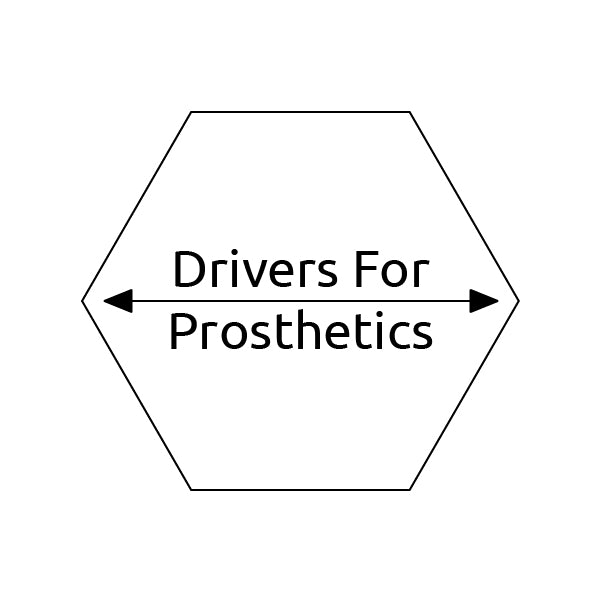Used to place dental implants with precision, used to attach the implant to the jawbone by tightening it into place.
They are designed to fit the specific type of implant being used, and are typically used in conjunction with wrenches to provide the proper amount of torque to ensure a secure and stable connection between the implant and the jawbone.
We offer a variety of drivers, manual and powered (electric or air-driven), all made of high-quality Stainless Steel to ensure their durability and longevity.
They are designed to fit the specific type of implant being used, and are typically used in conjunction with wrenches to provide the proper amount of torque to ensure a secure and stable connection between the implant and the jawbone.
We offer a variety of drivers, manual and powered (electric or air-driven), all made of high-quality Stainless Steel to ensure their durability and longevity.
Open Description
FAQs
Drivers for implants are used to precisely place and securely tighten pieces into the jawbone. In most cases, a specifically chosen driver (picked to match the shape and size of the implant) is used together with a wrench to create a stable connection between the jaw and implant- as well as the perfect amount of torque for seamless insertion and secure tightening.
They are used for the implantation and removal of all types of dental implants- and are made using surgical-grade stainless steel for long-lasting hygienic safety and cleanliness.
Drivers for implants can be manually powered, air-driven, or electric. There are multiple wrench options to choose from for the perfect setup to ensure seamless surgeries.
There are several high-quality GDM Dental Implants drivers to choose from. Depending on the type of implants you are working with, you can use:
- Hex drivers (from 2.0mm to 2.65mm)
- Motor-mount drivers (from 2.00mm to 2.42mm)
- Surgical implant drivers and surgical one-piece implant drivers (with long handles to allow for more tactile movement)
-Drivers for one-piece implants, one-piece screw-shaped implants, and flexible-neck one-piece implants
Most drivers for implants come in multiple lengths and various widths to work compatibly with all kinds of implants and other prosthetics. Some have conical connections and others do not- again, to make the range more versatile and beneficial to more surgeons and clients.
Yes. While most standard implants can be services using hex drivers, some varieties require different tools. Most drivers for implants can be adapted for a share fitting rather than hexagonal as standard, and there are specific drivers designed for root-shaped implants.
It is also important to consider the different lengths and widths of the drivers themselves. Not all implants are the same size, and they need tools that match perfectly to achieve the desired tension, torque, and precision.
Universal kits are excellent starting points for dental implant surgeries. A kit includes three core components: a motor mount, a manual driver adapter, and a hex driver adapter. The versatile options this kit provides offer a compatible solution for all standard internal hex implants- but you may still need additional tools for other non-standard implants or prosthetics.
Some other tools likely to be required include a wrench ratchet and driver devices designed for root-shaped implants.











































